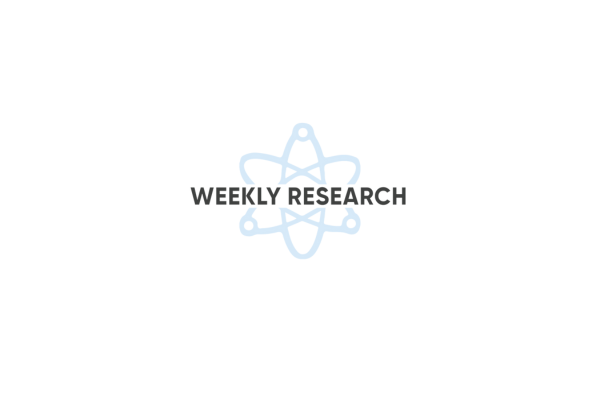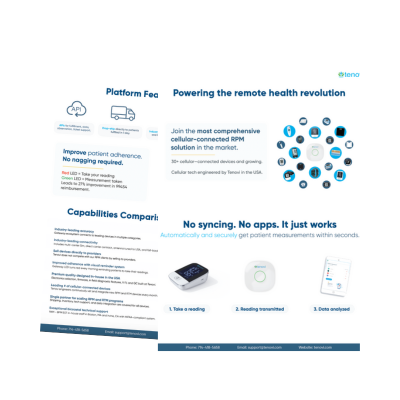Telehealth has become a critical tool in modern cardiology. By combining virtual visits with remote monitoring tools, telehealth cardiology programs help manage chronic heart conditions, reduce hospital readmissions, and improve patient outcomes. This week’s research spotlight from Tenovi explores how telehealth and cardiology intersect through at-home monitoring, policy changes, and real-world studies that demonstrate clinical and economic value.
How Telehealth Supports Cardiology Care
Ongoing management of cardiovascular disease depends on more than occasional in-person appointments. Telehealth enables continuous support through video visits, mobile apps, wearables, and remote patient monitoring (RPM). These tools allow clinicians to track symptoms and intervene earlier before conditions may escalate.
At-home devices such as Holter monitors, smartwatches, and implantable defibrillators provide real-time data on vitals like heart rate, rhythm, and blood pressure. This data gives providers the visibility they need to spot early signs of decompensation and make timely care decisions. Some remote monitoring programs have even been linked to a 44% reduction in hospital readmissions and more than $10 million in cost savings over six years.
Atrial Fibrillation: A Use Case for Telehealth
Atrial fibrillation (AFib) is an established use case for telehealth cardiology. AFib is an irregular heartbeat caused by chaotic electrical signals in the heart’s upper chambers. This condition reduces the heart’s efficiency and increases the risk of stroke and heart failure, and blood clots due to uneven blood flow.
Remote monitoring tools, such as some smartwatches and wearable ECG devices, can be used for AFib detection and ongoing rhythm assessment. In fact, the 2023 ACC/AHA/ACCP/HRS Guideline for the diagnosis and management of atrial fibrillation includes a Class IIa recommendation supporting the use of consumer-accessible electrocardiographic devices for rhythm monitoring.
This update signals a major shift in how telehealth cardiology tools are entering mainstream care. Smartwatches and other wearable devices are now part of evidence-based practice in cardiology.
Study in Telehealth and Cardiology Care: Heart Failure
A study presented at the 2025 American College of Cardiology from the Smith Center for Outcomes Research in Cardiology at Beth Israel Deaconess Hospital found that telehealth parity laws were linked to a reduction in heart failure hospitalizations.
Researchers reviewed data from 2009 to 2019, comparing states with and without laws requiring insurers to reimburse telehealth the same as in-person visits. States that enacted these laws saw 20.3 fewer hospitalizations per 100,000 people annually for acute decompensated heart failure (ADHF). The most significant effects emerged 4 to 7 years after implementation—pointing to lasting impact from greater access to virtual care.
The Economic Value of Telehealth
Cost savings are another major advantage of telehealth adoption. A 2024 national study published in Telemedicine and e-Health analyzed 1.4 million telehealth encounters across major health systems and one Medicaid agency. The findings showed telehealth was tied to broad cost reductions for both Medicare and Medicaid—ranging from $445,000 to over $30 million, depending on the region.
These savings were particularly high in underserved and rural areas and included conditions such as behavioral health, pulmonary disease, and notably, heart disease. Virtual visits not only reduce direct clinical costs but also help avoid indirect expenses from missed work, transportation barriers, and preventable hospitalizations.
The Future of Telehealth and Cardiology Care
Telehealth has opened the door to more proactive and personalized cardiovascular care. New innovations such as AI-assisted diagnostics and virtual cardiac rehabilitation are helping providers treat patients earlier and more effectively, without driving up costs. In a healthcare landscape with provider shortages and rising chronic disease, telehealth offers a scalable, patient-centered solution that aligns both clinical goals and value-based care models.
Subscribe to the Tenovi Blog below for new studies and research every Monday. Tenovi helps chronic care, telehealth, and RPM software companies transform healthcare, reduce hospital readmissions for their clients, and create a better future. Contact Tenovi today for a free demo and consultation.


